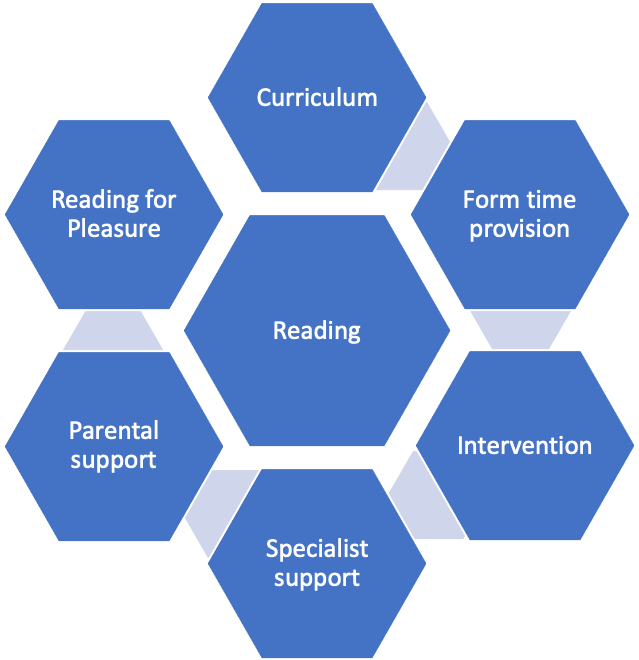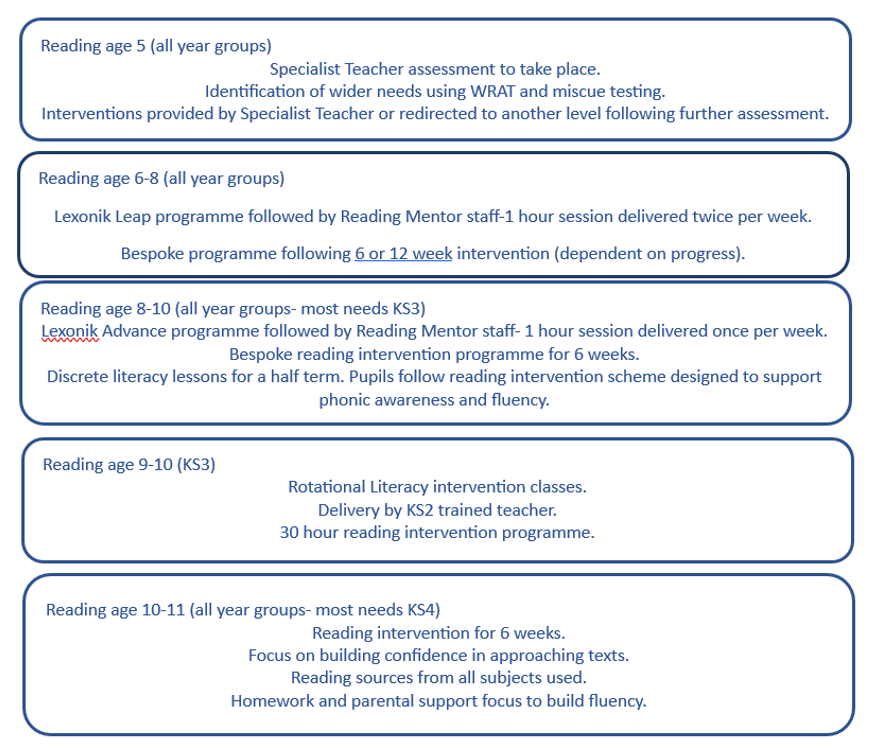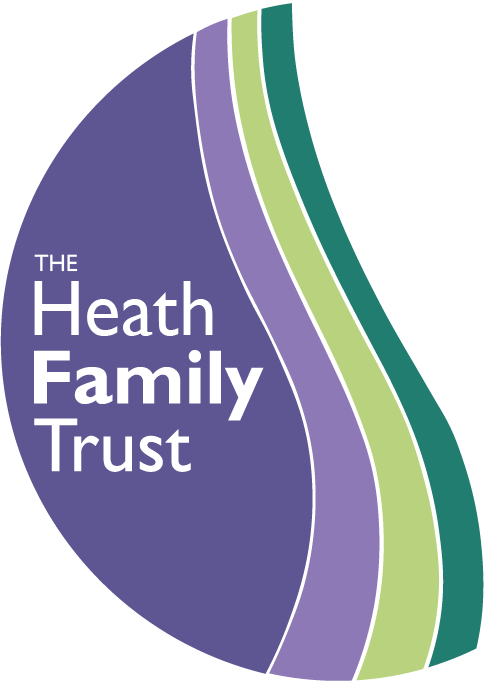Reading
Reading at The Prescot School

| Strategy leaders |
|---|
|
E Earps- Vice Principal Inclusion and Safeguarding N Traverse- Head of English K Grainger/A Barnard- Literacy Leaders |
Assessment of needs
|
Testing |
All pupils are tested annually to review their reading progress and identify needs using GL NGRT. Following NGRT, further testing is tiered to identify pupils' specific reading needs. Individual pupil reading age data is shared with all staff- pupils are coded into: Purple: below age 5 Red: under functional reading age (9.6 years) Amber: at functional reading age (9.6 years) Green: reading age in line with or above chronological age. |
|---|---|
|
Intervention testing |
Intervention models are progressive, pupils will move through the interventions and be retested on GL NGRT following this input. Additional diagnostic testing is also used to determine the nature of the reading gap. This enables us to select the correct intervention level and type. |
|
Measuring impact |
Whole school strategies and intervention are carefully evaluated for compliance, quality and impact. We ensure they are responding to emerging needs and bring consistency to our reading strategy. We measure the impact on reading ability and accessibility to reading. Support for pupils aims to increase competence and progress in all curriculum areas. |
Curriculum
|
Teaching and Learning provision |
All teachers proactively support the culture of reading through implementation of Trust and school strategies. Opportunities take place to model reading fluency throughout lessons through reciprocal, coral and echo reading. Whole class discussions to clarify the meaning of key vocabulary and develop cultural capital. Reciprocal reading and reading theatre strategies (choral and echo reading) are built into whole school CPD. These aim to embed and complement the reading fluency form time reading sessions.
The English and Humanities departments focus on reciprocal reading strategies of clarifying, summarising, questioning and predicting; teacher modelling complex reading is to key to understanding. Time is allocated to reading within lessons in all KS3 classes. Texts are chosen to develop hinterland knowledge of core curriculum concepts. Time is allocated to the discussion of reading and key vocabulary is extracted from each text. This continues to develop across other curriculum areas. All staff follow a consistent approach to teaching reading i.e. the recap, the pre-teach, the modelling and the questioning. All staff are continually delivering connect activities with a vocabulary focus to embed subject specific terminology. This is further supported through subject knowledge organiser testing. Reciprocal reading strategies are used to link vocabulary to subject specific text reading. Spelling tests happen across all key stages. Spelling Bee competitions take place termly at KS3 to celebrate and reward progress. |
|---|---|
|
Wider reading |
Opportunities for wider reading are provided within our curriculum provision. Resources are developed with Head of Departments to encourage pupils to read wider around topics and encourage their subject curiosity. These are captured in curriculum planning documents. |
Form time provision
|
2023-2024 provision |
The aim of form time reading is to improve reading fluency. Reading takes place in form time twice per week. All staff have regular CPD to focus the teaching of reading fluency meaning that all teachers become teachers of reading. The aim of form time sessions is to develop reciprocal reading strategies. In the Autumn Term, years 7-10 investigate the openings of a range to texts to develop core reciprocal reading strategies. In the Spring term, these year groups read a novel written in poetry. This will allow for fluency strategies and theatre reading to be developed. Texts chosen are age appropriate and tackle challenging issues such as friendship, identity and county lines. In the Summer term pupils will read a novel. Novels selected are age appropriate and allow pupils to develop a love of reading for pleasure. This approach is underpinned by evidence-based research from EEF strategies, which shows that reading fluency and vocabulary improves even when children are being read to, and how this approach also develops a love of stories and reading which encourages greater independent reading. |
|---|---|
|
2024-2025 provision |
Form time provision will expand in the next academic year to allow for extended time in form to further prioritise reading. During this time pupils will read a range of age-appropriate novels which allow them to develop a love of reading. The reading completed during 2023-24 is a springboard to this expansion. |
Interventions
|
Reading mentors (HLTAs) |
Three reading mentors support interventions for pupils working in the bottom 20% of reading levels within the school. TPS uses Lexonik Leap and Advanced at KS3 and tailored interventions at KS4 linked to specific subjects. Rewards for pupils are built into the programme, the aim of mentors is to build both skill and confidence as well as improving pupils reading ages. |
|---|---|
|
Specialist support |
Our Specialist Teacher within the Inclusion team will facilitate miscue and WRAT testing for pupils to identify the needs for specialist interventions. |
|
Discrete Literacy lessons |
Pupils in years 7 to 9 with a reading age of between 9 and 10 take part in rotational literacy lessons. These lessons are taught by KS2/3 teachers and follow a 30 hour reading intervention programme. |
|
Bottom 20% strategies |
|
|
|
|
| Curriculum target classes | Year 8 and 9 have a targeted reading group. Pupils have been selected using reading ages. Curriculum remains the same, but with further targeted reading activities. |
Family support
|
Family support |
A half termly support session runs with Assistant Principal and Head of English. Each session offers books to take home and key strategies to support parental skills alongside the strategies taking place in school. |
|---|---|
|
Family engagement |
A series of fun sessions run throughout the academic year. Each has an author present and food available. Authors will work with families to support engagement with reading. |
Reading for Pleasure
|
Rewards |
Strategies are built into all interventions, form time and English lessons to reward those who engage positively within reading. Pupils are rewarded with tokens to use in the book vending machine. |
|---|---|
|
Access to texts |
Book fairs take place three times in each academic year. Pupil Premium funding is used to support access to this provision. Pupils in vulnerable learning categories regularly have texts provided for home use from PP funding. |
|
Pupil voice |
The views of pupils are sought termly to ensure school is responsive the both the types of texts our children enjoy reading and how best to provide access to them. |
| EAL library | A bespoke library is in place across all key stages to support reading for pleasure. |
|
Homebase libraries |
The school is committed to having a well-resourced, maintained library, accessible for all with a strategy to increase uptake of usage so all children have open access to book. Library spaces are available in each homebased with subject specific selections. |


